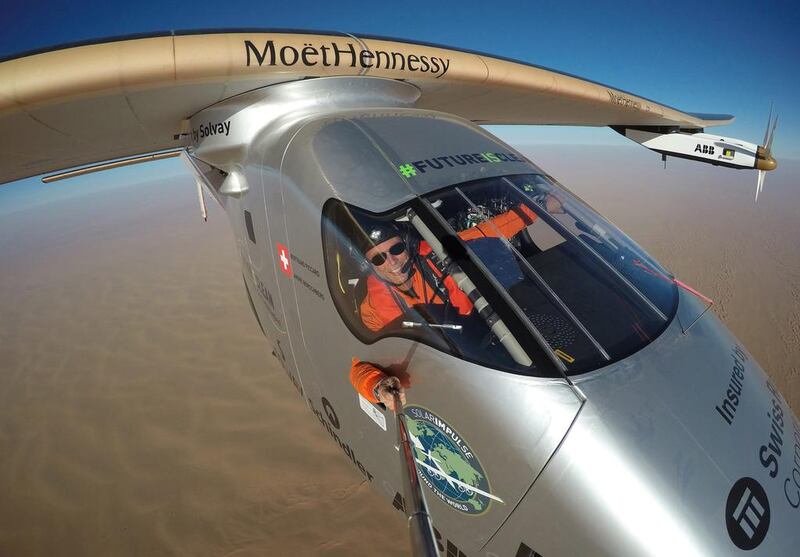Almost a year after Bertrand Piccard and Andre Borschberg completed their epic solar-powered flight around the world to promote the use of renewable energy, the pilots reflected on the road less travelled and the journey ahead at the Ramadan majlis of Sheikh Mohammed bin Zayed, Crown Prince of Abu Dhabi and Deputy Supreme Commander of the Armed Forces .
Solar Impulse 2 was a project that was 18 years in the making, and allowed the UAE to demonstrate its ability to compete in ground-breaking technology on a global scale. With the country attempting to diversify away from oil and into alternative and renewable energy, the project was a perfect platform for testing the technology.
Mr Piccard and Mr Borschberg have done much to silence the naysayers around the world and prove that possibilities of solar power. Now that momentum must be capitalised on.
Still, much of this real-world application will depend on continuing advances in electric vehicle battery technology.
Thankfully, the creation of many more charging points for electric cars indicates an increasing awareness of the need to think beyond traditional diesel and petrol-powered cars.
Dubai’s Roads and Transport Authority recently purchased 200 cars from Tesla. While such cars will definitely have a limited target market – at least for now - owing their high retail price, these are steps in the right direction.
The only real challenge with renewable energy has been getting production costs on a level with fossil-based and nuclear energy. This, according to the experts, won’t be such a big deal in a few years. The cost of solar energy, for one thing, has steadily declined in recent years – in fact, almost halved in Dubai for some types of solar panels from 2015 to 2016.
According to Abu Dhabi-based International Renewable Energy Agency, solar power applications could drop by 40 to 60 per cent by 2025, while wind costs may fall by more than a third. In fact, the UAE has helped drive down alternative energy costs globally, according to the agency. All these factors point to a favourable climate in which the latest vehicles and gadgets can thrive and the planet can breathe. The progress made so far is more than promising and given the visit of the brave pilots to Sheikh Mohammed’s majlis one year on, it seems there is every intention to keep it up.





